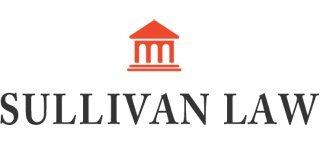Best Trusts Lawyers in Winnipeg
Share your needs with us, get contacted by law firms.
Free. Takes 2 min.
List of the best lawyers in Winnipeg, Canada
About Trusts Law in Winnipeg, Canada
Trusts law in Winnipeg, like the rest of Canada, provides a way to manage and protect assets for individuals and families. A trust is a legal arrangement where a trustee holds and manages property for the benefit of the beneficiaries. Trusts can serve various purposes, such as estate planning, minimizing taxes, and protecting assets. In Winnipeg, trusts are governed by both federal and provincial laws, ensuring that they are established and managed according to strict legal criteria. This can include personal family trusts, charitable trusts, and business-related trusts.
Why You May Need a Lawyer
There are several situations where individuals in Winnipeg may require legal assistance with trusts:
- Establishing a Trust: You may want to create a trust to manage your assets now or after your death, requiring careful legal structuring.
- Trust Administration: Lawyers can assist trustees in managing the responsibilities and liabilities involved in administering a trust.
- Disputes and Litigation: In case of disputes among beneficiaries or other parties, a lawyer can provide necessary representation and negotiation.
- Tax Implications: Trusts can have significant tax consequences, and legal advice can help in efficient tax planning.
- Complex Estate Planning: For estates with high value or complexity, a trust lawyer can help navigate intricate legal and financial issues.
Local Laws Overview
In Winnipeg, trusts are influenced by both federal laws and Manitoba's provincial legislation. Key aspects include:
- The Trustee Act (Manitoba): This Act outlines the powers and duties of trustees and lays down guidelines for trust administration.
- Income Tax Act (Canada): The federal taxation of trusts, including reporting and paying taxes, plays a crucial role in trust management.
- Evidentiary Requirements: Trusts must often meet formal writing and evidentiary requirements, emphasizing the need for precise legal documentation.
- Fiduciary Duties: Trustees must adhere to fiduciary duties, ensuring trust property is managed in the best interest of beneficiaries.
- Family Property Act: This may affect trusts in the context of marital breakdowns, requiring legal evaluation and advice.
Frequently Asked Questions
What is the difference between a trust and a will?
A will comes into effect upon death, dictating the distribution of assets. A trust, however, can be used both during a person's lifetime and after, providing more flexibility in asset management.
Can I change the terms of a trust once it's created?
It depends. Some trusts are revocable and can be changed or terminated, while others are irrevocable and permanent without the beneficiaries' consent or a court order.
Who can be a trustee?
A trustee can be an individual, such as a family member or friend, or a corporate entity, such as a bank or trust company. The trustee should be someone you trust to manage the assets responsibly.
What are the tax implications of setting up a trust?
Trusts can have specific tax benefits and liabilities. Income generated by a trust must typically be reported, and Canada Revenue Agency rules will apply. Legal advice is crucial for optimal tax planning.
How is a trust administered?
The trustee is responsible for administering the trust according to the terms set out in the trust deed, which includes managing investments, distributing income, and keeping accurate records.
Can a trust protect my assets from creditors?
A trust can offer some protection against creditors, but it's essential to seek legal advice to understand the limitations and regulations in this area.
How do I know if a trust is the right option for me?
Consult a legal professional to evaluate your personal circumstances, financial goals, and how a trust aligns with your estate planning objectives.
Are there different types of trusts available?
Yes, there are various types of trusts, including living trusts, testamentary trusts, and special needs trusts, each serving different purposes and offering distinct benefits.
What documentation is needed to establish a trust?
Typically, a trust deed is required, outlining the terms of the trust, trustee powers, and beneficiary details. Legal assistance can ensure all documentation complies with applicable laws.
Can a trust be dissolved?
Yes, a trust can be dissolved under certain conditions, either by fulfilling its purposes or if deemed by courts to be managed or created improperly.
Additional Resources
If you need further information or assistance with trusts, consider reaching out to the following resources:
- Law Society of Manitoba: Offers resources for finding qualified lawyers in Winnipeg.
- Canada Revenue Agency (CRA): Provides information on the tax aspects of trusts.
- Winnipeg Legal Clinics: Community legal clinics can provide guidance and resources on trusts and estates.
- Manitoba Public Trustee: Can help answer questions related to public trust administration and management.
Next Steps
If you are seeking legal assistance with trusts, it’s advisable to:
- Consult with a lawyer specializing in trust and estate law to discuss your specific needs and options.
- Prepare relevant documents, such as your financial statements and family information, to assist your lawyer in providing tailored advice.
- Contact the Law Society of Manitoba for referrals to qualified lawyers who can assist you with your trust-related needs.
Lawzana helps you find the best lawyers and law firms in Winnipeg through a curated and pre-screened list of qualified legal professionals. Our platform offers rankings and detailed profiles of attorneys and law firms, allowing you to compare based on practice areas, including Trusts, experience, and client feedback.
Each profile includes a description of the firm's areas of practice, client reviews, team members and partners, year of establishment, spoken languages, office locations, contact information, social media presence, and any published articles or resources. Most firms on our platform speak English and are experienced in both local and international legal matters.
Get a quote from top-rated law firms in Winnipeg, Canada — quickly, securely, and without unnecessary hassle.
Disclaimer:
The information provided on this page is for general informational purposes only and does not constitute legal advice. While we strive to ensure the accuracy and relevance of the content, legal information may change over time, and interpretations of the law can vary. You should always consult with a qualified legal professional for advice specific to your situation.
We disclaim all liability for actions taken or not taken based on the content of this page. If you believe any information is incorrect or outdated, please contact us, and we will review and update it where appropriate.












